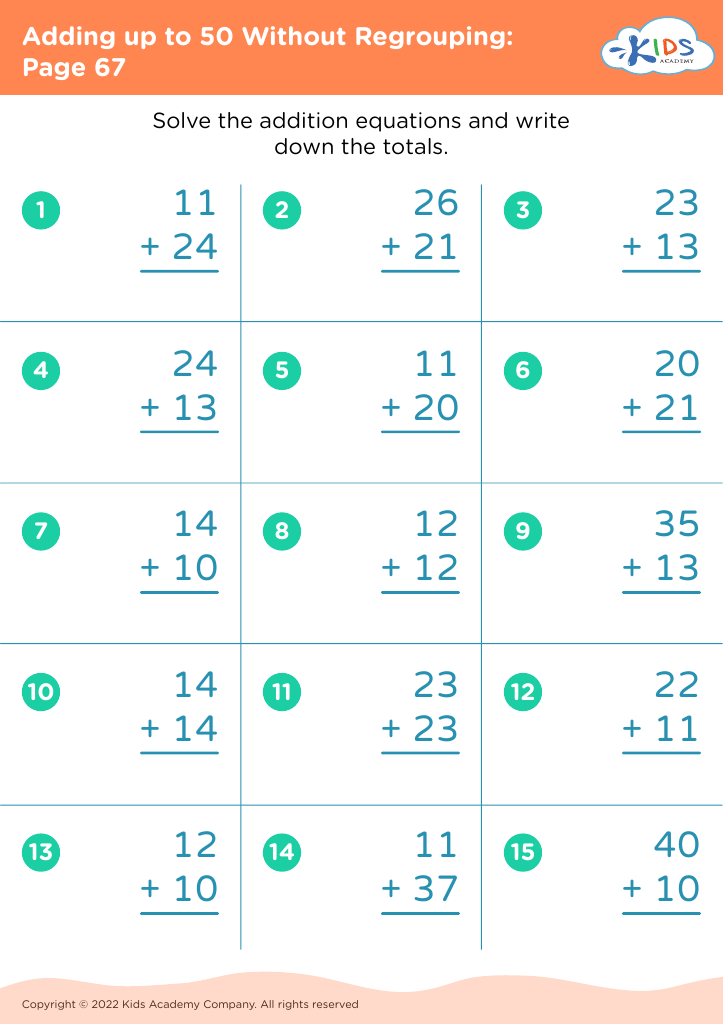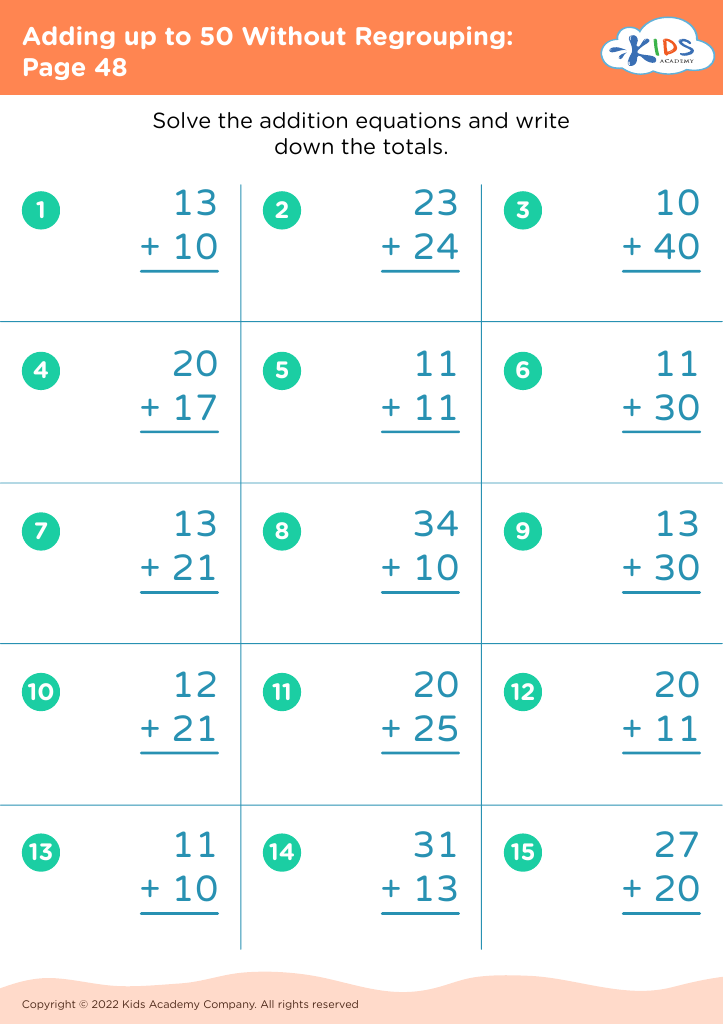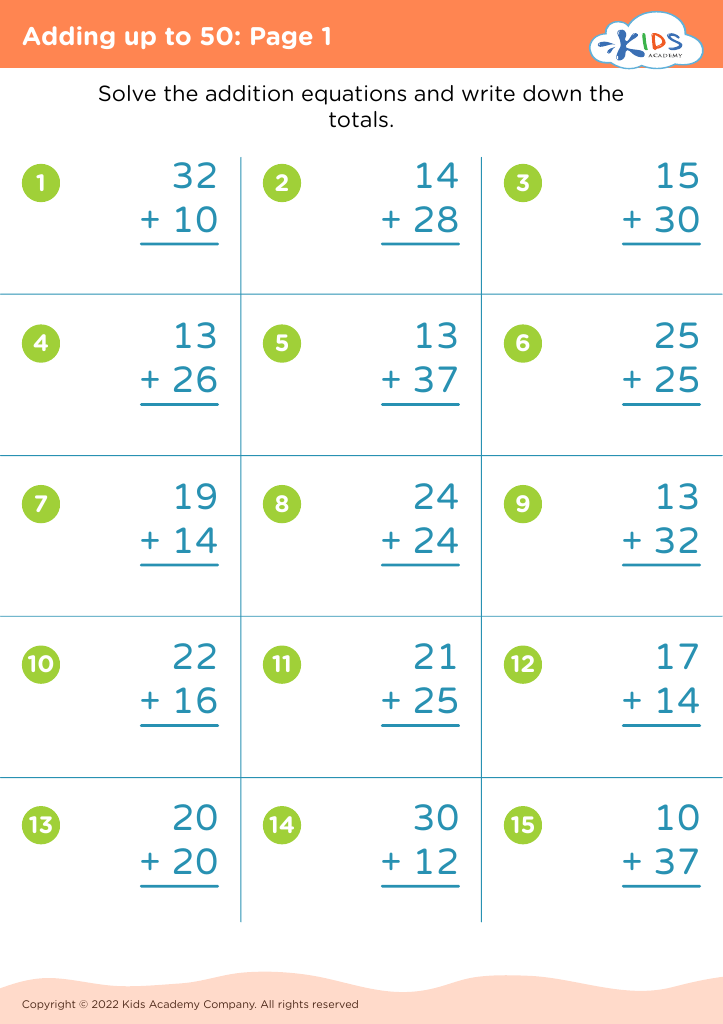Basic Addition Adding up to 50 Worksheets for Ages 3-8
7 filtered results
-
From - To
Discover our engaging "Basic Addition Adding up to 50 Worksheets" designed for children ages 3-8! These interactive and colorful worksheets make learning addition fun and accessible. Perfect for early math learners, they introduce essential addition concepts through varied exercises, ensuring children build confidence while honing their skills. With clear visuals and age-appropriate problems, these worksheets cater to different learning paces, promoting independent practice in a supportive environment. Ideal for teachers, parents, and homeschooling families, our resources foster a love for math from an early age. Start your child's mathematical journey today with these essential and entertaining addition worksheets!
Basic addition skills, particularly adding up to 50, are crucial for children aged 3-8 as they lay the foundation for future mathematical understanding. At this developmental stage, children are naturally curious and receptive to learning, making it an ideal time to introduce basic math concepts. Mastering addition helps develop cognitive skills, such as problem-solving and critical thinking, which are essential across all subjects, not just math.
Understanding addition fosters good numeracy habits that children will rely on for everyday activities, from counting objects to managing money. This skill also supports their emotional growth, as achieving mastery in basic addition can boost self-confidence and encourage a love for learning. Moreover, parents and teachers play a vital role in this early learning phase, as they can create supportive environments rich in playful, engaging mathematical activities that make learning enjoyable.
Finally, equipping children with strong addition skills not only helps them perform better in school but also prepares them for more complex mathematical concepts they will encounter later, ensuring a smooth transition into higher levels of education and critical life skills. Thus, investment in basic addition education is fundamental for children's overall development and lifelong learning.



















